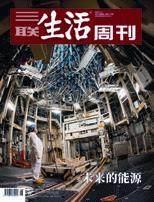HORN OF AFRICA AFFAIRS SPECIAL ENVOY
China has appointed Xue Bing, former ambassador to Papua New Guinea, as the special envoy for the Horn of Africa affairs, the Foreign Ministry announced on February 22.
Xue is a veteran diplomat with work experience spanning Africa, the Americas, and Oceania.
The special envoy will establish working relationships with colleagues from relevant parties as soon as possible and maintain close communication and coordination on advancing the implementation of the Outlook on Peace and Development in the Horn of Africa.
During his visit to Africa earlier this year, Chinese State Councilor and Foreign Minister Wang Yi proposed the Outlook, which intends to support regional countries in achieving lasting peace and security as well as embracing development and prosperity.
Workers’ Daily February 23
Recent years have seen a growing number of scenic spots nationwide advocating free park admissions to encourage footfall. Instead of losing ticket revenues, these parks actually have seen profits go up.
For years, scenic spots relied heavily on admission income, but excessively expensive entrance tickets resulted in visitor discouragement. Facts now show that if they are willing to give up a portion of their ticket sales, these parks will have bigger opportunities to establish overall profit growth.
Tourists are no longer satisfied with arriving somewhere and taking a snapshot or two. They like to spend time experiencing the various options within a park. Therefore, when scenic spots cut, or even cancel, admission fees at the first gate, and develop more interesting features inside their domains, more visitors will prove willing to splurge on the latter.
A cancellation of admission fees not only helps boost a scenic spot’s revenue, but nearby restaurants, hotels and shops, too, will stand to gain from it.
Lifeweek February 21

In June 2021, Sichuan Province in southwest China witnessed a shutdown of various bitcoin mines, in a bid to save energy and cut emissions. Although bitcoin is only an encrypted code in the virtual world, mining these crypto-currencies takes a lot of power, hugely adding to carbon emissions.The mining industry is wholly based on brute force, and the costs will rise as bitcoin reserves drop. Each transaction consumes 2,300 kWh of electricity, equal to the annual power consumption of a three-member urban unit. More importantly, bitcoin is only one of the many crypto-currencies. Today, Internet data centers worldwide account for 2 percent of the globe’s total power consumption.
Artificial intelligence (AI), widely recognized as a future economic pillar, is an even bigger potential electricity guzzler. Right now, AI is also based on brute force. Of course, the popularization of the Internet can also help cut carbon emissions in some areas; for example, video conferences save on transportation expenses.
Ironically, the higher carbon consumption efficiency soars, the larger demand will be. Unlike the agricultural or material sectors, which can achieve sustainable development through advanced productivity or frugality, energy is the fundamental foundation for all social and commercial activities, or rather, human progress. And mankind’s pursuit of progress is endless.
Legal Daily February 23
With the popularization of smart phones across China’s vast rural areas, many left-behind children have developed an addiction to browsing short videos and online gaming, posing a threat to their development.
Compared with their urban peers, these children are more vulnerable to smart phone culture. Most of them live with their grandparents and to keep in touch with their parents, they have their own phones, as their elderly custodians are often technologically illiterate. Subsequently, many kids are on their mobiles as often and as long as they please.
Smart phone addiction can have serious consequences. Apart from leading to poorer eyesight, it can also interfere with schoolwork. Some boarding students spend their weekends browsing about, and find it hard to concentrate on their studies when returning to school on Mondays. More dangerous is that an indulgence in the virtual universe will render them increasingly self-reclusive, particularly with no parents around.
To drag these kids out of virtual reality, it’s important for schools to encourage them to do sports and develop hobbies in real life, by offering the right venues and services. Ma Ming, former vice chairperson of the Inner Mongolia Regional Committee of the Chinese People’s Political Consultative Conference, was recently sentenced to life in prison on grounds of bribery.
The court found Ma had taken advantage of his various positions in Jilin Province and Inner Mongolia, between 2000 and 2019, to seek benefits for others regarding business operations, job promotions and case management.
Ma was convicted for taking bribes amounting to over 157.85 million yuan ($24.93 million) in both money and valuables.
It further stated Ma’s case involved a particularly large number of bribes and numerous instances over a prolonged time period, but he was given a lenient sentence because he had confessed to his offenses, showed remorse, provided additional information about his and others’ wrongdoings, and returned all his illegal gains.
“China always takes its own position according to the merits of the matter at hand. We believe that all countries should solve international disputes by peaceful means in line with the purposes and principles of the UN Charter.”
Zhang Jun, China’s permanent representative to the United Nations (UN), speaks as the UN Security Council meets on Ukraine in New York City on February 21
“People of all ethnic groups in Xinjiang Uygur Autonomous Region do not welcome any investigation based on the presumption of guilt, and they firmly oppose all kinds of prejudice and groundless accusations against China’s ethnic policies.”
Wang Yi, Chinese State Councilor and Foreign Minister, at the 58th Munich Security Conference via video link on February 19, noting China welcomes foreigners to visit Xinjiang to learn the truth
“Sanctions are never fundamentally effective means to solve problems, and China always opposes all illegal unilateral sanctions… Have U.S. sanctions solved any problems? Is the world a better place because of those sanctions?”
Hua Chunying, spokesperson for the Foreign Ministry, at a daily press briefing on February 23
“During the implementation of projects, the company hired citizens of Kyrgyzstan, who learned a lot. I hope that our cooperation will continue.”
Ulan Uezbaev, an official with the Bishkek mayor’s office, on the role of the China Road and Bridge Corp. in job creation through undertaking road projects in Kyrgyzstan, in a recent interview with Xinhua News Agency
3435500338291

